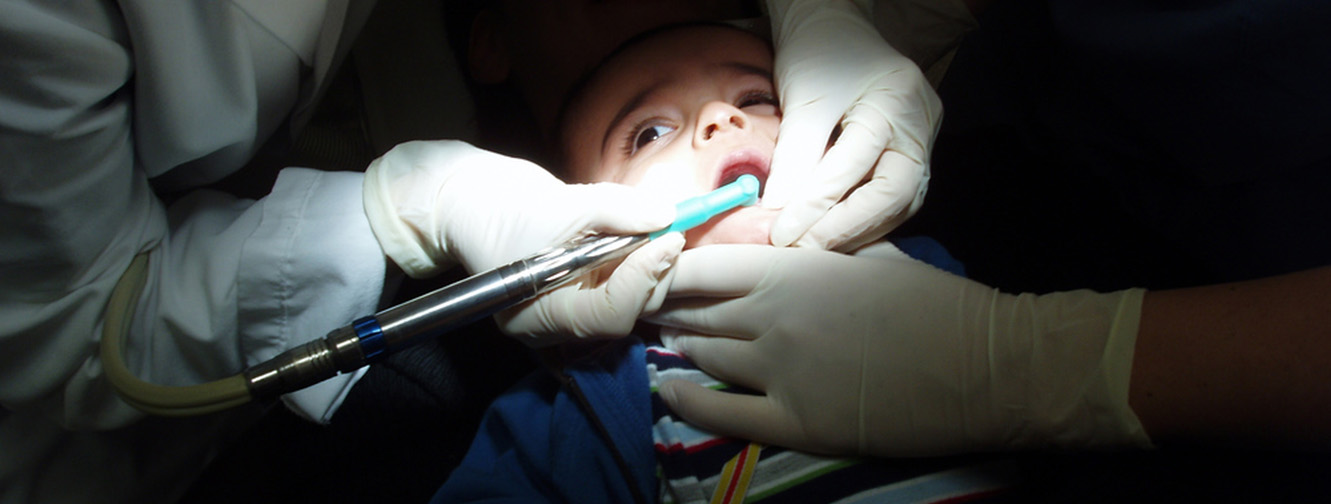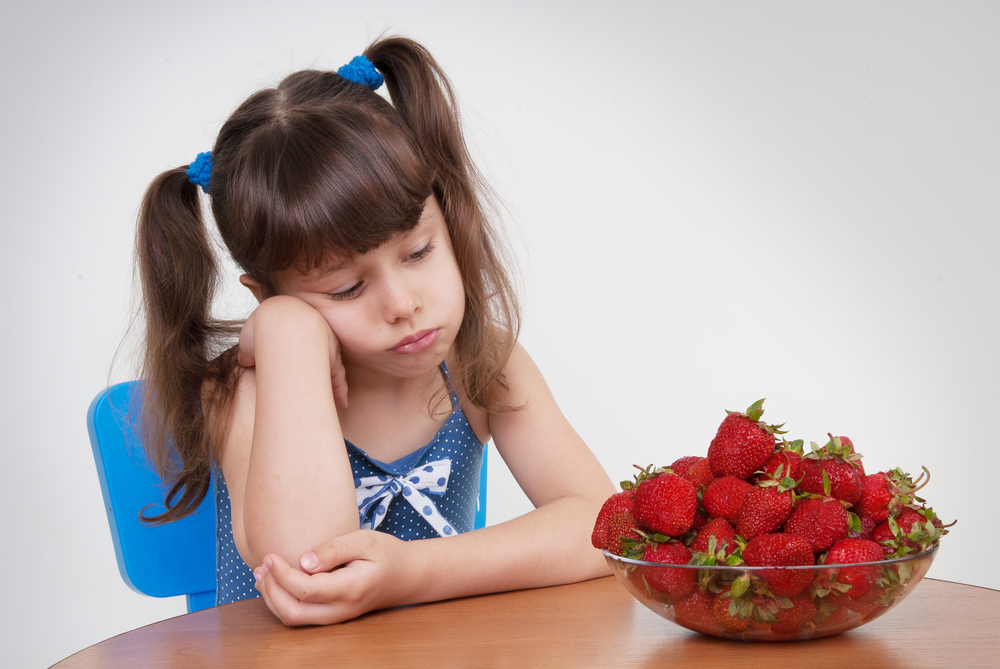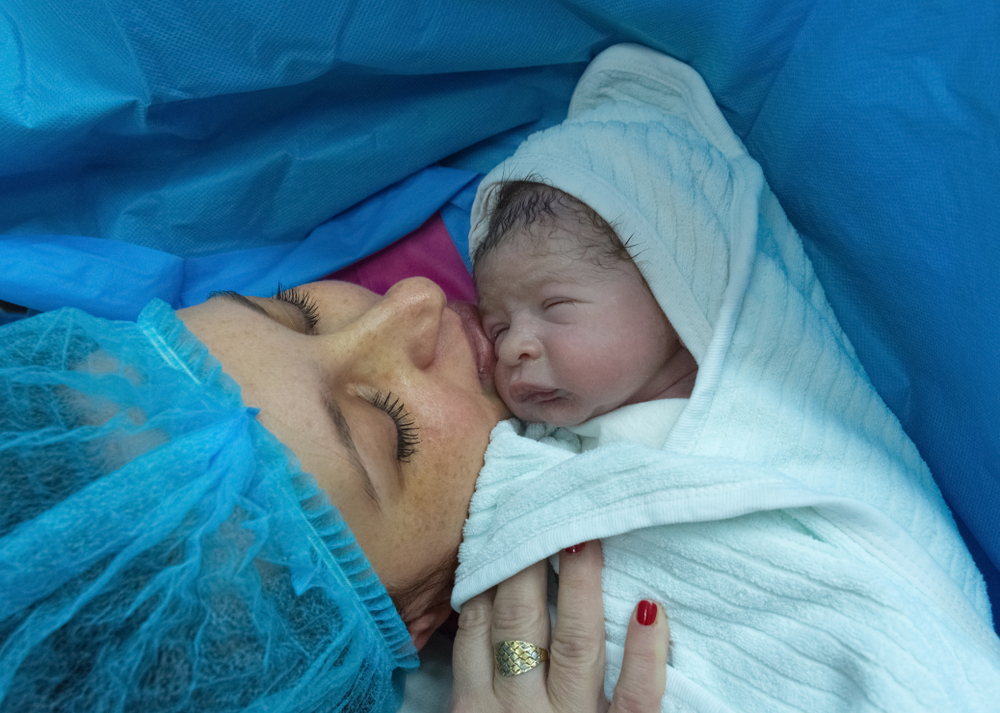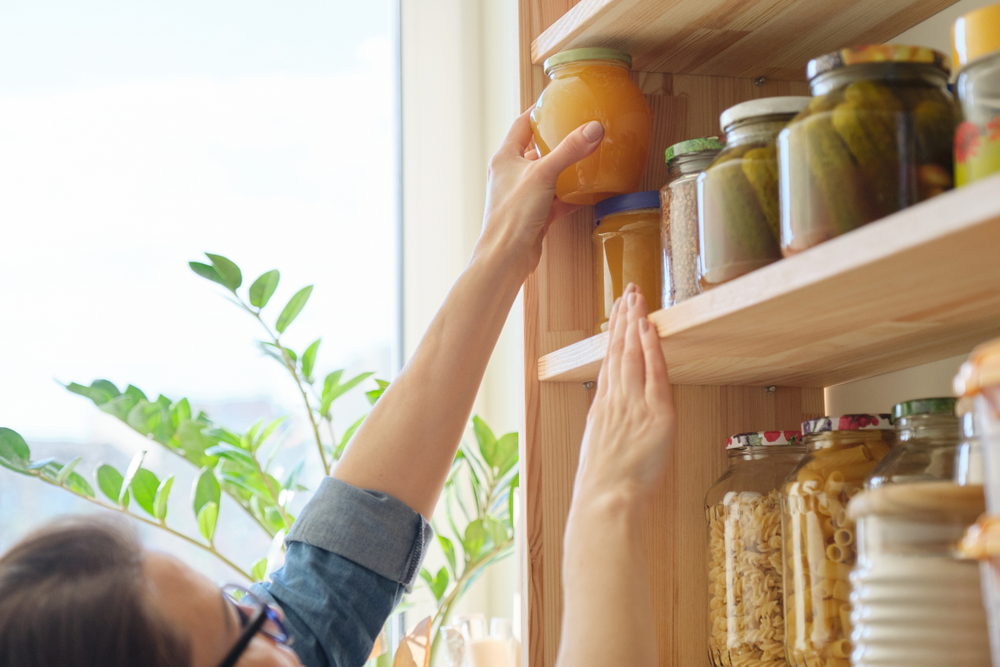Your heavy periods are not normal!

If your doctor told you that your heavy, devastating period is “normal”, I respectfully disagree.
Heavy periods that lead to iron-deficiency anemia and pain that keeps you in bed or requires heavy doses of painkillers are not “normal.”
What’s a heavy period?
- If you’re changing pads every 1-2 hours
- Using more than six pads a day
- If your whole life is planned around your periods
- If you dread wearing white pants
- Your periods last more than seven days
- You pass blood clots that are larger than a coin
- You have to wake up at night to change your pad/tampon
The normal blood loss during a period is 30-80 ml (1-6 tablespoons). If you bleed more than that, your period is heavy.
What causes heavy periods?
First: Estrogen dominance
The most common cause of heavy periods is high estrogen. Estrogen is the hormone responsible for “growing”. If it’s high, your uterus lining grows more than it is supposed to, leading to heavy periods when this lining sheds.
The most common cause of high estrogen in our world is xenoestrogens. These are endocrine-disrupting chemicals that have a stronger effect than natural estrogen. They come from water, food, cosmetics, personal hygiene products, pesticides, and plastics.
I recommend that you start there!
- Make sure that you’re drinking filtered, clean water. NOT from a plastic bottle.
- Eliminate plastic containers and slowly replace them with glass ones.
- Never heat anything in plastic.
- Start slowly replacing your shampoos, soaps, shower gels, and lotions with natural ones that contain minimal amounts of chemicals. I realize that it’s not easy. But it’s something that you can control.
Other root causes of high estrogen include poor detoxification (genetic), constipation (which means that you’re not excreting the toxins in your body, including extra hormones), and the use of oral contraceptive pills containing estrogen. Remember that using external hormones for your health condition is not treating the root cause of your disease.
The bacteria in your gut play an important role in hormone regulation. The estrobolome is the bacteria in your gut responsible for estrogen regulation. Fixing your microbiome by eating fermented food and/or using the right probiotic supplement for you will help.
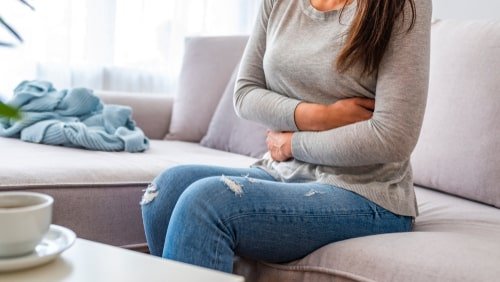
To fix estrogen dominance:
- Reduce exposure to xenoestrogens
- Swap your personal hygiene products with natural ones. The best ones are the ones you can eat! If you can eat it, allow it on your skin. For shampoos and soaps, stay away from anything that contains extra lather. Avoid products that contain too many chemicals. Avoid parabens; they are endocrine disruptors.
- Use organic produce as much as you can. Pesticides are known endocrine disruptors, especially glyphosate, which is highly sprayed on wheat.
- Avoid plastics
- Enhance estrogen detoxification
- Avoid constipation by drinking enough water and eating fiber. If that’s not enough, work with your healthcare practitioner to find the root cause of your constipation and treat it.
- Eat enough cruciferous vegetables (like kale, cabbage, broccoli, cauliflower, brussel sprouts). These vegetables contain compounds that support your detoxification.
- Use supplements like I-3-C (Indole-3-Carbinol) or DIM (Diindolylmethane), both found in cruciferous vegetables. If you need extra support, you can use them in supplement form.
- Use two tablespoons of freshly ground flaxseeds daily. Flax seeds contain phyto-estrogens which are weaker than natural estrogens and xenoestrogens. They will occupy the receptors and reduce the activity of other estrogens in your body. They are also a good source of fibers.
Second: If you’re not ovulating
Another cause of heavy periods is the lack of ovulation. Every woman should be ovulating around her mid-cycle (usually day 14 if your cycle is 28 days). If your cycle is more than 35 days, likely you’re not ovulating.
The most common cause of anovulation in women is PCOS (polycystic ovarian syndrome). Other symptoms of PCOS include irregular periods, hirsutism (hair in unusual places like the face), dark underarms or neck, depression, hair loss, and weight gain.
To support ovulation:
- You need B vitamins, vitamin C (from citrus fruits, strawberries, broccoli, brussel sprouts, kiwi, and others), vitamin D, and calcium. The main source of calcium should be leafy greens and vegetables. Sesame and almonds are abundant in calcium. Dairy products should be avoided in women with PCOS. They have been shown to affect their condition negatively.
- Reduce stress. Reducing stress is not just a fancy word that we use in every condition. Stress actually impacts your stress hormones. Managing stress is something that you can learn. Try meditation, yoga, journaling, and other strategies until you find what resonates with you.
- Sleep! High-quality sleep is needed to avoid high cortisol. Cortisol, the main stress hormone, reduces melatonin which can reduce your sleep. It’s a vicious cycle. Melatonin is needed for ovulation, and low melatonin can cause irregular cycles.
Third: Endometriosis/Uterine fibroids
In this condition, the same tissue that is in your uterus grows elsewhere in the body. When it’s time for your uterus to shed, the same happens to the tissue that grew elsewhere, causing extreme pain and heavy bleeding. Endometriosis is one of the most underdiagnosed conditions in women.
Usually, it’s diagnosed when the woman is seeking pregnancy and is trying to find out why she’s infertile. A normal ultrasound will not likely be enough to diagnose the condition. It’s important to find the right practitioner and get a correct diagnosis.
Uterine fibroids occur when muscle tissue grows in your uterus. High estrogen is another cause of this condition. To reduce estrogen dominance, follow the steps outlined above and make sure you are taking enough iodine in your diet.
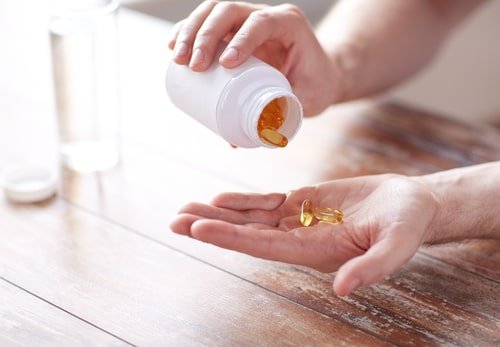
What might help?
- Ginger root
Using 500-1000 mg of ginger root supplement up to 3 times daily is safe and effective for reducing heavy menstrual bleeding. Ginger is an anti-inflammatory agent and is much safer than non-steroidal anti-inflammatory drugs (e.g., ibuprofen) that destroy your gut lining and have long-term side effects.
- Yarrow tea
Drinking 15 grams of yarrow tea daily in divided doses is an effective way to reduce your period flow. Drink 1-2 cups daily by adding boiling water to 2 teaspoons of the dried herb and covering for 20 minutes. Drink warm. Do not drink yarrow tea if you are pregnant.
- Fish oil
Taking omega-3 supplements shifts the balance in the body to favor omega-3s over omega-6s; this creates an anti-inflammatory situation in the body. For best effects, make sure that you get at least 1500 mg of pure omega-3 fatty acids (EPA and DHA). Make sure that the brand you are using is purified of mercury.
- Treat the root cause
Work with your practitioner to find the unique root cause of your condition and treat it.
Having heavy periods is not your destiny. It is a condition that needs to be treated. Finding the root cause of your condition and changing your lifestyle will definitely get you where you want to be.
If you don’t know where to start, seek help. It’s OK to ask for the help of professionals who will guide you through your journey. The only thing you definitely don’t want to do is live with it.







